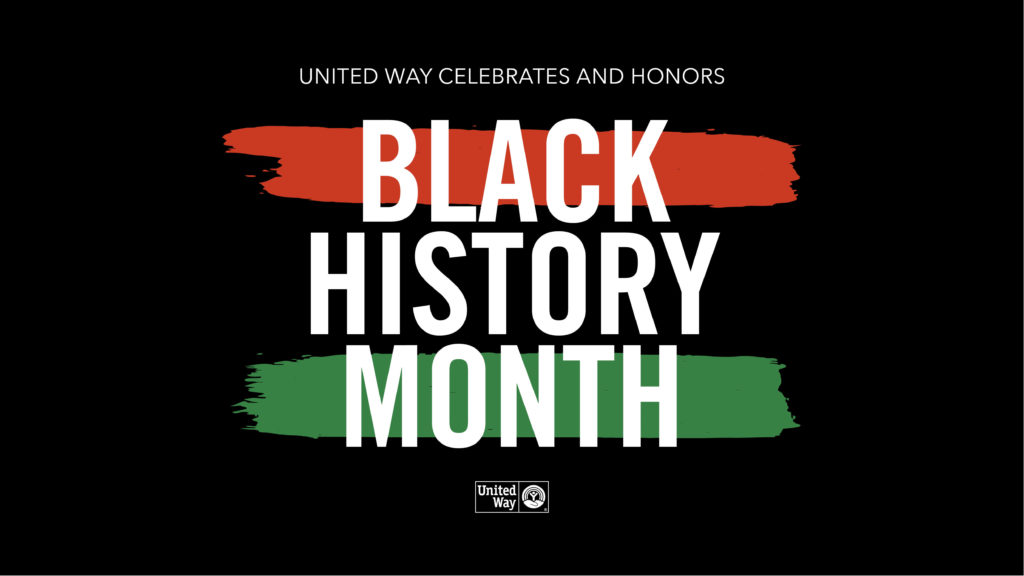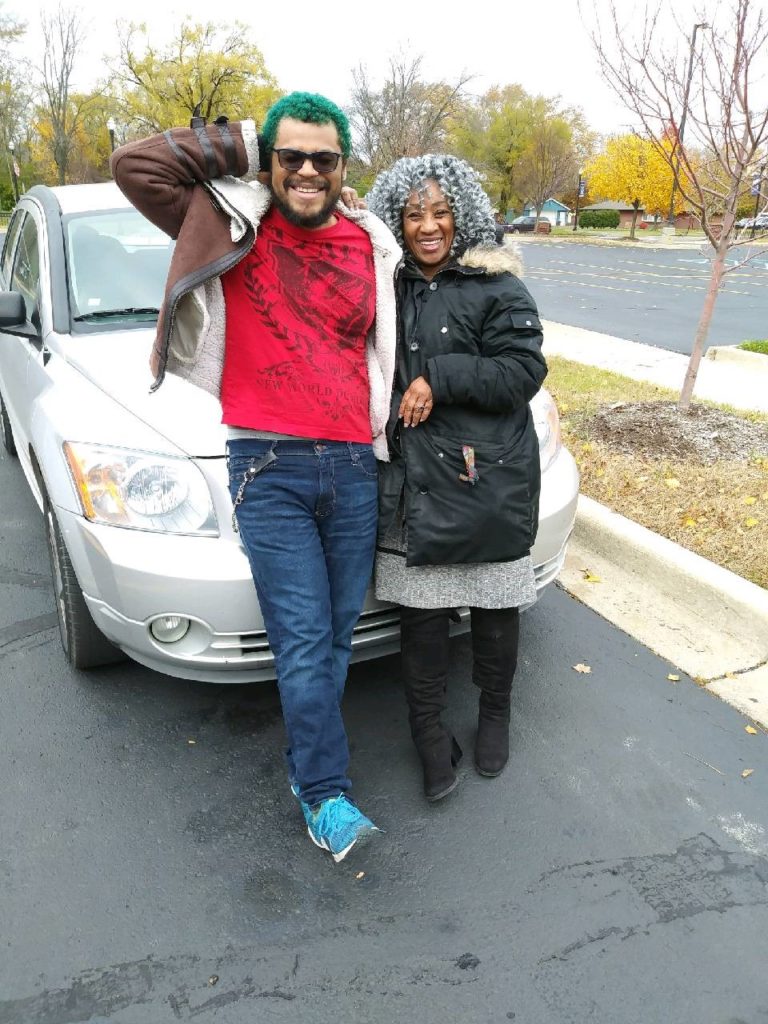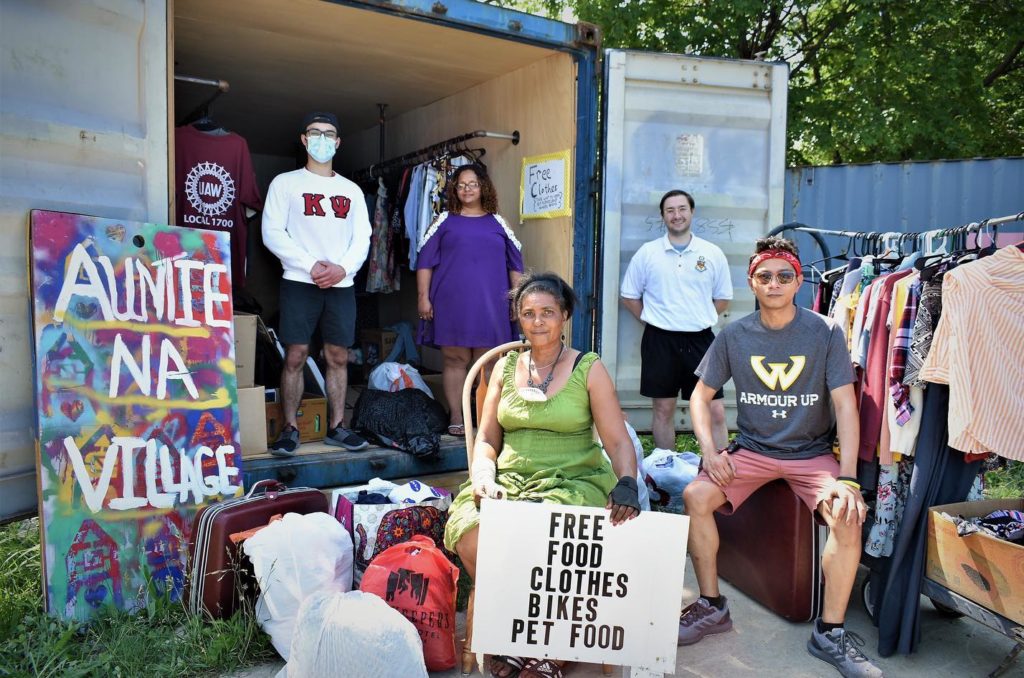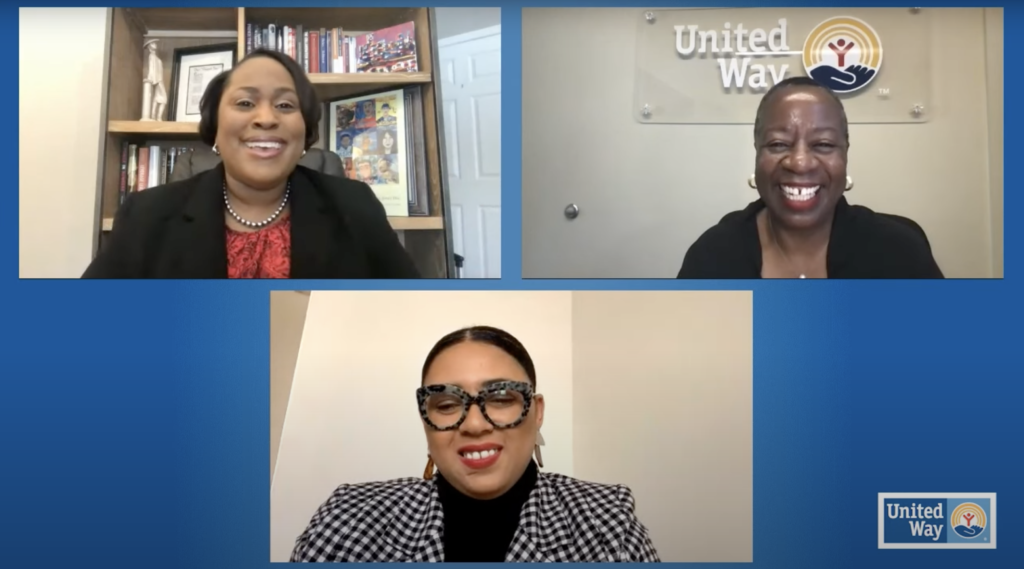Storytelling Takes Center Stage During Black History Month
Published on February 28, 2022 in Diversity, Equity and Inclusion

Storytelling. A tradition as old as time. It preserves, connects and enlightens.
For African Americans who have had their experiences and triumphs erased from history books or otherwise manipulated, the passing down of stories takes on even more significance. It’s a way to say: We’re here. And we matter.
While Black History Month provides a time to focus on the much-lauded history makers who changed the trajectory of a country, it is perhaps an even better time to bring attention to the lesser-known stories of Black individuals, families and communities. When we share these stories, we elevate the importance of lived experiences across past, present and future, and invite our neighbors to take a few steps in our shoes.
United Way for Southeastern Michigan is committed to deconstructing systemic racism and institutional bias while promoting diversity, equity and inclusion as a core value in every aspect of our work. In stories captured and shared via our social media channels, we find the threads that link us together and chip away at walls constructed to divide us.
Sharing stories helps foster empathy, according to Andre Ebron, senior director of diversity, equity and inclusion at United Way for Southeastern Michigan. When talking about the power of empathy, Andre often shares a quote by Pakistani novelist Mohsin Hamid, “Empathy is about finding echoes of another person in yourself. If we are able to understand each other by stepping in the other person’s bubble, by diving into their beliefs, values, by being more welcoming and trying to find echoes of the other person in ourselves, we will be able to create a better understanding between each other which will help us make a better world.”
Looking Back

One of the most powerful stories we shared this month came from our own labor liaison, Tanise Hill. She reflected on her grandson’s coming out experience and how love changed her perspective.
“I grew up in the ’50s and ’60s. It was a time when you could be a lot of things in a Black, churchgoing family, but the one thing you couldn’t be under any circumstances was gay,” Tanise wrote. “Over the years, my mindset never evolved. I wasn’t hateful. I just wasn’t accepting. Looking at my grandson across that table, the first thing I realized is that I didn’t love him any less. It wasn’t him who had a problem, it was me.”
Tanise shared that she initially felt hesitant to tell her story. But when she realized that through sharing, she would set a powerful example of what’s possible for other families, she knew she couldn’t hold back.
“I’ve come a long way,” Tanise said, laughing about her experience attending the local Pride parade with her grandson. “I hope our journey opens other people’s minds and hearts.”
Looking Forward

Through the story of Auntie Na’s Village, we learned about the power of community and perseverance.
Sonya “Auntie Na” Brown began by setting up a table with free items in front of the home that had been in her family for generations. She now offers thousands of pounds of food to the community each week and opened a medical house, with plans to turn several other abandoned homes on the block into a medical house, a learning house and a clothing house.
She credits the vision for Auntie Na’s village to her grandparents, who opened their doors and helped others during difficult times, adding that many survived those hardships because those around them “remembered the ‘unity’ in community.”
“Like African Americans have been doing since the beginning, I took a single mustard seed and got a whole lot of Grey Poupon,” she wrote.
Recognizing firsts

Also, during February, we heard poignant stories from United Way for Southeastern Michigan President and CEO Dr. Darienne Hudson and United Way Worldwide CEO Angela Williams, who are the first Black women to lead their respective organizations.
Inspired by her parents to be bold and to not take no for an answer, Angela became determined to “break not just the glass ceiling, but the concrete barrier that really exists for African American women,” she said during the chat.
Both Ms. Williams and Dr. Hudson reflected on their influences while recognizing the progress that still needs to be made.
“Here we are in now in 2022. Isn’t it amazing that we’re recounting these stories and journeys,” Dr. Hudson said. “You would think that by now, we wouldn’t still be the first or the only. It just signals that there is still so much work to do.”
United through stories
Storytelling can play an important role in creating more opportunities.
“You have to – you must get outside of yourself and put yourself in someone else’s shoes, that’s number one,” Ms. Williams said. “Number two, we have to all value other people’s experiences. Your experiences are not like mine, but you cannot devalue my experience and I cannot devalue yours.”
Angela said that while she was inspired by tales of prominent African Americans like Harriet Tubman and Sojourner Truth, it was the stories of her family – her grandmother who ran a one-room schoolhouse, and her father who conquered one man’s prejudice with coffee – that built her character and impacted who she is today.
“Hearing the stories of others and hearing the stories of their experiences and saying me too, I can do this, is really what has carried me through. As others hear our stories, they can be encouraged and say I can do that too. I can achieve,” Angela said.
Darienne agreed, sharing heartwarming stories about her parents and her big sister Kara, who is a neonatologist.
“Anyone can do this,” Dr. Hudson said. “Everyone has a story.”
“Take time to talk about your journey, share it with others. Ask people about their journeys and what’s inspired them. This is how we create the narrative and the counternarrative to what’s possible.”
You can watch the full conversation between Dr. Darienne Hudson and Angela Williams here. We also invite you to use our online form to share your story and keep the conversation going across our community.